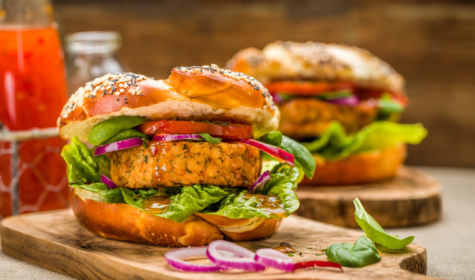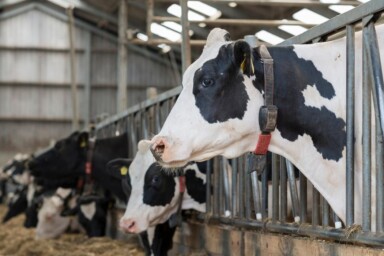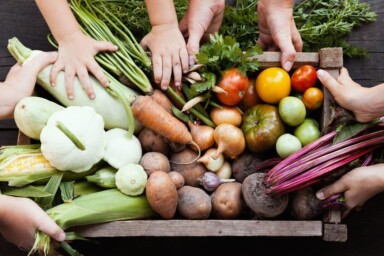For a while, people who disagreed with this proposition – often farmers, or those with some hands-on involvement in food production – shook their heads and largely ignored the new-wave vegan chorus, in the mistaken belief that like other fad diets, it would pass.
It hasn’t. Those who see sense in eating animal products are increasingly portrayed as heretics, going against the flow of a righteous majority, represented by affluent urbanites. You’ll come across precious few proletarian vegans. Latter-day vegangelism is a dogmatic, intolerant religion that grips the chattering classes.
From where did the extreme polarisation of omnivores and vegans come? For 30 years, like many omnivores, I worked shoulder-to-shoulder alongside vegans in campaigns against factory farming: declaiming mega-dairy farms, caged salmon production, battery hens, animal cloning and genetic engineering. We disagreed on one key point: I would kill or use an animal for human food, and they wouldn’t. But, on almost everything else, we thought alike.
Then veganism went millennial. An influx of young people was radicalised online by extreme, emotive, radical animal rights propaganda from the US, through films such as Cowspiracy and What the Health, that masqueraded as factual ’documentaries’. These digital generations, more at home behind a laptop in a coffee bar than in the garden, kitchen or field, spent hours on social media pouring over context-free material, selected on a worst-case scenario basis, showing animal pain and torment. They were deeply disturbed by it. Sensing mass recruitment opportunities, organisations such as PETA, Vega and a whole posse of more nebulous, near anarchist animal rights groups, have supplied them with a steady flow of simplistic, cherry-picked or fallacious – but easily quotable – statistics to reinforce the anti-animal cruelty message with what appear to be plausible environmental and health arguments. Many millennial vegans, however well intentioned, have absorbed fake news through social media where the script of ‘animal foods are bad’ is never challenged. Mainstream media, which speaks to a broader church and an older demographic, runs the same ‘plant-based is best’ theme continuously. In May, for example, BBC News, under its science and environment strand, ran a feature aimed at school students: Climate change: Answers to your most asked questions. It contained this statement, citing the seemingly authoritative UN Intergovernmental Panel on Climate Change (IPCC) as its source: “Buy less milk, meat, cheese and butter and more locally sourced seasonal food.” Of course, in the UK, milk, meat, cheese and butter are our locally sourced food; they never go out of season. This muddled, logically inconsistent advice was a classic example of the Dunning-Kruger effect – that is, you don’t understand enough about a subject to know that what you believe to be true doesn’t stand up.
For the time being, it seems, there is no equivalent weight of air time to counter the dominant vegan food mantra, although the international blow-back from nutrition and emissions experts against the controversial Eat-Lancet diet, in which animal foods, irrespective of provenance and mode of production, are reduced to tiny amounts, has met with organised resistance. In April, the WHO withdrew its support for an EAT-Lancet launch event in Geneva after its Italian ambassador raised concerns about EAT-Lancet’s lack of scientific rigour and the diet’s negative impact on human health and livelihoods.
But while the war of words rages, the enthusiasm of millennial vegans is being seriously dented for other reasons. Although love for animals and environmental concerns are part of the vegan argument, the tantalising promise of a slimmer figure and glowing good looks has also been a central plank in its sales pitch to millennials, especially to young women. Part of its appeal was its figureheads, what appeared to be an ever-lengthening list of celebs, bloggers and Instagram pin-ups, relishing their new plant-based, vegan lifestyles. But many have undergone a very personal reality check: the state of their health.
In February 2019, Tim Shieff, a prominent vegan YouTuber and athlete, who had appeared in anti-animal food ‘documentaries’ What the Health and Forks over Knives, publicly abandoned his vegan diet, citing “digestion issues, depression, fatigue, brain fog, lack of energy,” and “waking up stiff”. He attempted to heal himself by trying a fruit and herb fast, a high-fat diet, a high-carb low-fat diet, along with different supplements, but “overall there was still a general, slow decline” he said.
In March, an enviably beautiful, if worryingly thin, highly influential Instagram blogger who goes by the name of Rawvana, and who previously advocated a raw vegan diet, started haemorrhaging followers when she was ‘caught’ on camera eating fish. Her ‘excuse’ for deviating from the vegan path was that she had been experiencing health problems: anaemia, no periods for years, hormones at pre-menopausal levels, yeast infections, digestive issues including small intestine bacterial overgrowth. This had forced her to add animal proteins back into her diet, she explained apologetically to her outraged fan base.
In April, actress Anne Hathaway revealed that she too was no longer vegan. “I just didn’t feel good or healthy…not strong,” she explained. “I had a piece of salmon and my brain felt like a computer rebooting.” And so, the worldwide drip-drip defection from the vegan cause goes on. In May, Virpi Mikkonen, a high profile Finnish blogger and cookbook author with 164,500 Instagram followers, who championed plant-based eating, abandoned vegetarianism because it was ruining her health. “‘I felt I had run out of fuel, totally,” she says. “I was empty.” She is now particularly fond of bone broth and eats eggs – a major departure because she used to refer to them as the “miscarriages of chickens”.
It seems that millennial vegans are undergoing a human nutrition reality check. It’s common knowledge that vegan diets are deficient in vitamin B12. This is why anyone eating this way is advised to take a B12 supplement to avoid serious health problems, such as pernicious anemia. But fewer people appreciate that a vegan diet, unless extremely carefully and knowledgeably composed, may also leave people short of other key micronutrients: retinol(preformed vitamin A); vitamin D3; vitamin K2; heme (the most bioavailable form of iron); and long chain omega-3 fatty acids (EPA and DHA).
Lack of protein can be an issue too. As one group of researchers concluded: “The nutritive value of vegetal proteins is lower than that of animal ones…In other words, an individual would need to eat more vegetal proteins to get the same level of nutrition as that offered by the animal ones.”
If the realities of human health is eating into the numbers of newly recruited millennial vegans, that raises the question of just how many vegans there actually are. The truth is that veganism in the UK remains a niche choice. This year, research for the Institute of Grocery Distributionfound that only 4% of shoppers claimed to have taken part in Veganuary 2019, as opposed to the 2% who say they are vegan all the time. Of the 4% of shoppers who gave Veganuary a whirl, only 16% said they planned to continue, an increase of 0.032%. Given that veganism has commandeered the public discourse on food, this is a paltry increase that most certainly doesn’t back up the grandiose claims being made for veganism’s unstoppable rise. Recently the Metro carried a headline, “More Britons are vegging out”, but again the statistic below didn’t quite support the claims in the headline. Metro quoted the Vegan Society saying that the number of vegans in Great Britain had quadrupled between 2014 and 2018. Sounds good? The figure given for current numbers of UK vegans was 600,000 – that’s less than 1% of the population.
Latest statistics on veganism from Kantar Worldpanel found that millennials make up over a third of all vegans. Female millennials are the most engaged, outnumbering their male counterparts by 5:1. Interestingly, vegans tend to show more significant population differences than those associated with the vegetarian consumer. Although both groups are more likely to live alone, in London and the South, and not have children in their household, vegans “over-index” in comparison to vegetarians – 44% of vegans live alone, 37% live in London and the South, and 93% do not have children.
These figures show that new-wave veganism, despite being loud, unrelenting, vituperative, and often recriminatory to initial adopters who fall off the wagon, has not broken through to a mass audience. Health issues are forcing millennial recruits to the cause to reassess. Millennials grow up. They cannot afford to eat out in fashionable vegan eateries every night and don’t want to spend every Saturday picketing shops carrying meat and dairy – even those that sell well-sourced high welfare animal foods.
Families that go vegan can be challenged by the fact that babies and children have nutritional needs most easily satisfied by the thoughtful consumption of some animal foods. A series of alarming cases has seen parents in European courts on charges of child neglect from feeding their babies a nutritionally deficient vegan diet. Who wants their child taken into care because it is wasting away on oat milk?
So, I think we can expect to see enthusiasm for a vegan diet cooling further amongst the millennials who would appear to have been its only really passionate adopters. I expect we’ll see more fudges. A retrenchment to the term ‘plant-based’ because it has lots of inbuilt wriggle room; likewise, ‘flexitarian’ is so accommodatingly yielding as to be reliably meaningless. Personally, I prefer the term ‘omnivore’, meaning someone who eats from all the major food groups, of which meat and dairy products – foods we produce so well in the UK, foods that are part of our culinary patrimony – are a valued part. This established, we could get back to a much more nuanced, and ultimately more productive discussion, about how we produce them.





